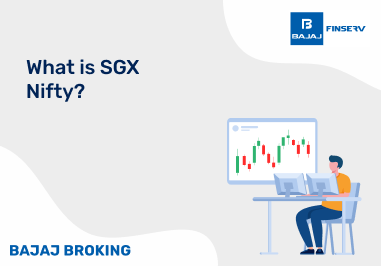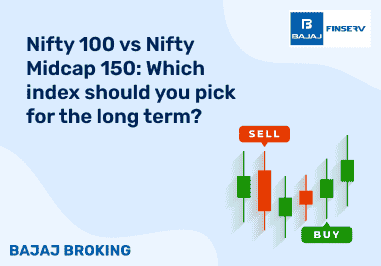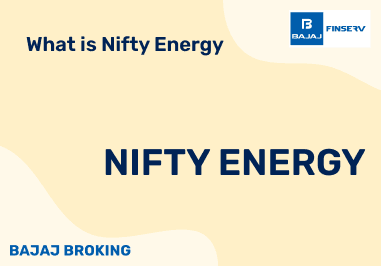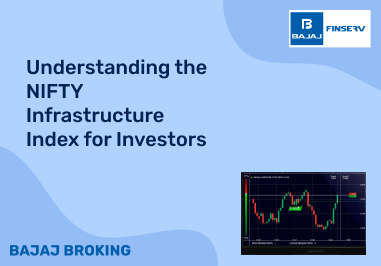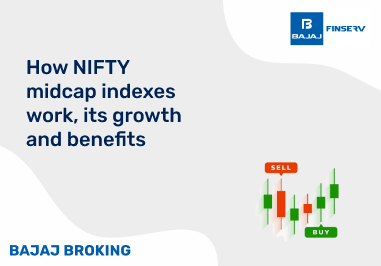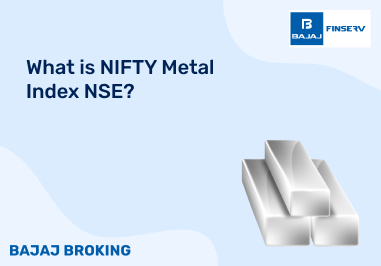What is the Nifty 50 Index?
The Nifty 50 Index is a key benchmark index representing the performance of 50 of the largest and most liquid companies listed on the National Stock Exchange of India (NSE). It covers various sectors, offering a comprehensive view of the Indian equity market. Constituted in 1996, the index serves as a gauge of the health of the Indian stock market and economy. Companies listed on the Nifty 50 are selected based on their free-float market capitalization, ensuring that only the most prominent businesses are included. The index encompasses industries such as banking, IT, energy, and consumer goods, giving a broad snapshot of the Indian market. Additionally, the Nifty 50 is widely used by investors as a reference for portfolio performance, risk assessment, and tracking market trends. Investing in the Nifty 50 can be done through index funds or exchange-traded funds (ETFs), which track the performance of the index, making it a popular choice for passive investors seeking market-wide exposure. The Nifty 50 Index continues to serve as a vital tool for both retail and institutional investors by providing insights into market movements and economic conditions.
How is NIFTY 50 Value Calculated?
The NIFTY 50 index is calculated using the free float market capitalization methodology. This method adjusts the market capitalization of index constituents by their investable weight factors (IWFs) and capping factors if applicable. Here’s a breakdown of the calculation:
Read more... Price Index Calculation:
Index Market Capitalization = Total shares outstanding * Price * IWF * Capping Factor (if applicable).
PR Index Value = (Index market capitalization / Base Market Capital) * Base Index Value.
The base market capital of the Index represents the aggregate market capitalization of each scrip during the base period, which is equated to a base Index value.
Total Return (TR) Index Calculation:
TR Index ValueT = (TR Index ValueT−1×(1+ Index Market CapitalizationT/ Index Market CapitalizationT−1 ))+(Total DividendsT× Modified Index SharesT/Index DivisorT )
Where:
Index Market Capitalization = Sum of (Price per share * Modified index shares).
Modified Index Shares = Total shares outstanding * IWF * Capping Factor (if applicable).
Total Dividends = Sum of (Dividend per share * Modified index shares).
Index Divisor adjusts for corporate actions like special dividends.
Nifty 50 Stocks Selection Criteria
The selection of stocks in the Nifty 50 is based on several stringent criteria to ensure the index accurately represents the most significant and actively traded companies on the NSE: • Liquidity: Stocks should have adequate liquidity, meaning they must be frequently traded with sufficient volume to enable easy buying and selling without significantly affecting the stock price.
• Free-float Market Capitalization: Only companies with a high free-float market capitalization are considered. This ensures that the index reflects stocks with a significant portion of shares available for public trading.
• Sector Representation: The index aims to cover various sectors to ensure diversified representation. This means including companies from different industries to provide a broad perspective of the market's performance.
• Trading Frequency: Stocks must be actively traded to ensure relevance. This criterion ensures that the included stocks have regular trading activity, which is crucial for accurate price discovery.
• Track Record: Companies with a solid performance track record are preferred. This includes evaluating the historical performance and stability of companies to ensure they meet the high standards required for index inclusion.
• Impact Cost: The cost of executing transactions should be minimal. Low impact cost indicates that the stock can be traded with minimal price disruption, ensuring efficient market operations.
These criteria collectively ensure that the Nifty 50 remains a reliable and representative benchmark of the Indian stock market.
How to Invest in NIFTY 50?
• Index Funds: Invest in mutual funds that mimic the Nifty 50, offering a simple way to gain exposure to the index through professional fund management.
• ETFs: Purchase exchange-traded funds that track the Nifty 50, providing the flexibility to trade like stocks while diversifying across all index constituents.
• Direct Investment: Buy individual stocks listed in the Nifty 50, allowing for personalized selection and direct ownership of the companies within the index.
What are the Benefits of Investing in the NIFTY 50?
• Diversification: Offers exposure to 50 large-cap companies across various sectors, reducing the risk associated with investing in a single sector or company.
• Stability: Includes companies with strong market positions and solid financials, providing a more stable investment option compared to smaller or less established companies.
• Growth Potential: Tracks top-performing companies, reflecting the growth of the Indian economy. This ensures that investors benefit from the economic expansion and increasing corporate profitability.
• Liquidity: High liquidity due to the active trading of constituent stocks, making it easier for investors to buy and sell shares without significantly affecting the stock price.
• Benchmark: Serves as a benchmark for assessing the performance of investment portfolios, helping investors to evaluate their returns relative to a widely recognized market index.
Investing in the NIFTY 50 provides a balanced mix of growth, stability, and liquidity, making it an attractive option for both new and experienced investors. Read less


